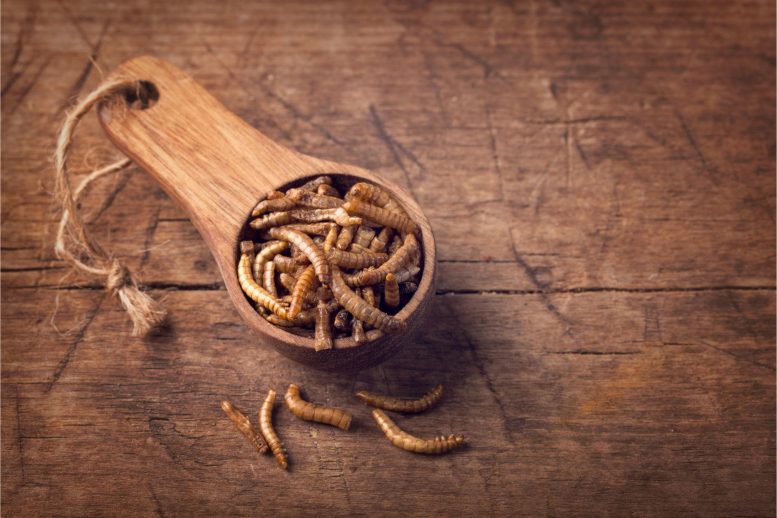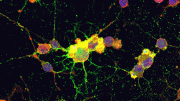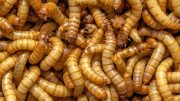
New research found that replacing traditional proteins with mealworms in high-fat diets for mice could offer numerous health benefits including reduced weight gain and improved cholesterol. While there’s hesitation in Western societies about insect consumption, it’s an environmentally sustainable protein source.
With the world’s population on the rise and climate change intensifying, there’s an increasing need for sustainable protein alternatives. While plant-based “meat” and “dairy” have gained popularity, they’re not the sole green alternatives to traditional meat.
Research from the University of Illinois Urbana-Champaign, conducted on mice, indicates that substituting conventional protein sources with mealworms in high-fat diets could slow weight gain, improve immune response, reduce inflammation, enhance energy metabolism, and beneficially alter the ratio of good to bad cholesterol.
“In addition to more dietary fiber, nutritionists also recommend eating more high-quality proteins as part of a weight management plan. We knew from an earlier study in roosters that mealworms are a high quality, highly digestible protein source that’s also environmentally sustainable,” said lead study author Kelly Swanson, professor in the Department of Animal Sciences and interim director of the Division of Nutritional Sciences, both in the College of Agricultural, Consumer and Environmental Sciences (ACES) at U. of I.
Swanson’s team fed mice a high-fat diet (46% calories from fat) with casein, a protein from dairy, for 12 weeks before switching to the alternative proteins. Another group, the control, consumed a lean diet with casein throughout the experiment. By the time mealworms were introduced, the high-fat diet group was obese and experiencing metabolic syndrome, a cluster of conditions increasing the risk of heart attack, stroke, diabetes, and other health problems.

Kelly Swanson, pictured, found mealworm protein can slow weight gain and improve blood metabolites in obese mice. Credit: L. Brian Stauffer, University of Illinois
The mice then started eating two types of mealworms in a dried, powdered form similar to flour, substituting either 50% or 100% of the casein in the diet. During and after 8 weeks on the experimental diets, the research team measured body weight, body composition, blood metabolites, and gene expression of the liver and adipose (fat) tissue.
Mealworm protein didn’t cause obese mice to lose weight, but their rate of weight gain slowed relative to mice consuming high-fat diets with casein. And the benefits went further than that.
“It’s not a weight loss situation; they just slowed their gain with the mealworms,” Swanson said. “The more significant impact was the improvement in their blood lipid profiles. Their LDL, so-called ‘bad cholesterol,’ went down and the HDL, ‘good cholesterol,’ went up. And from a gene expression perspective, inflammation went down and some of the lipid and glucose metabolism genes were altered. Not everything was positive, but metabolically, they were in a better place.”
Some of the benefits might have been associated with chitin, a fibrous material that makes up the exoskeleton of insects. Swanson said although the role of chitin hasn’t been well studied, it seems to act like a fiber, stimulating beneficial microbial activity in the gut. He has another paper in the works to characterize the effects of mealworms on the mouse microbiome.
Other studies have evaluated alternative proteins for obesity weight management in mice, but most have used genetically altered mice designed to stay obese no matter what. Swanson’s team intentionally used “wild type” mice so they would gain weight the same way many humans do: through diet.
But are humans ready for mealworm protein?
“There’s a ‘yuck factor’ for many in Western societies, where eating insects is not quite normal, but some populations have relied on insect proteins for millennia,” Swanson said. “With protein shortages becoming a reality, there may be a place for insect meals.”
For now, though, mealworm protein hasn’t yet been approved by the Food and Drug Administration. Insect-curious folks can try cricket flour, which can be used in foods according to the Food, Drug, and Cosmetic Act.
“You’re not seeing legs or anything like that,” Swanson said. “It’s just a flour that shouldn’t negatively impact the taste or other properties of foods.”
Reference: “Yellow Mealworm (Tenebrio molitor) and Lesser Mealworm (Alphitobius diaperinus) Proteins Slowed Weight Gain and Improved Metabolism of Diet-Induced Obesity Mice” by Yifei Kang, Catherine C. Applegate, Fei He, Patricia M. Oba, Miranda D. Vieson, Lorena Sánchez-Sánchez and Kelly S. Swanson, 16 June 2023, The Journal of Nutrition.
DOI: 10.1016/j.tjnut.2023.06.014
The study was funded by Ynsect.









Soap kills roaches , cats eat roaches but humans find them gross, intellegance
Biden 2024 — no hitter tau
So fine. Bill Gates won’t get fat.
Take your bugs and shove them up your clacker!
The benefit seems to have been from adding fiber to the diet. If you want that benefit, add fiber to your diet?
Mice eat insects. That’s their natural diet. The researchers fed mice dairy first, when very few mice have evolved the capability of impregnating cows to extract and consume their milk. Then they switched the mice to the appropriate diet of eating insects which they evolved for. Maybe that affects the results. Humans didn’t evolve eating insects, but can we test this new diet on these researchers?